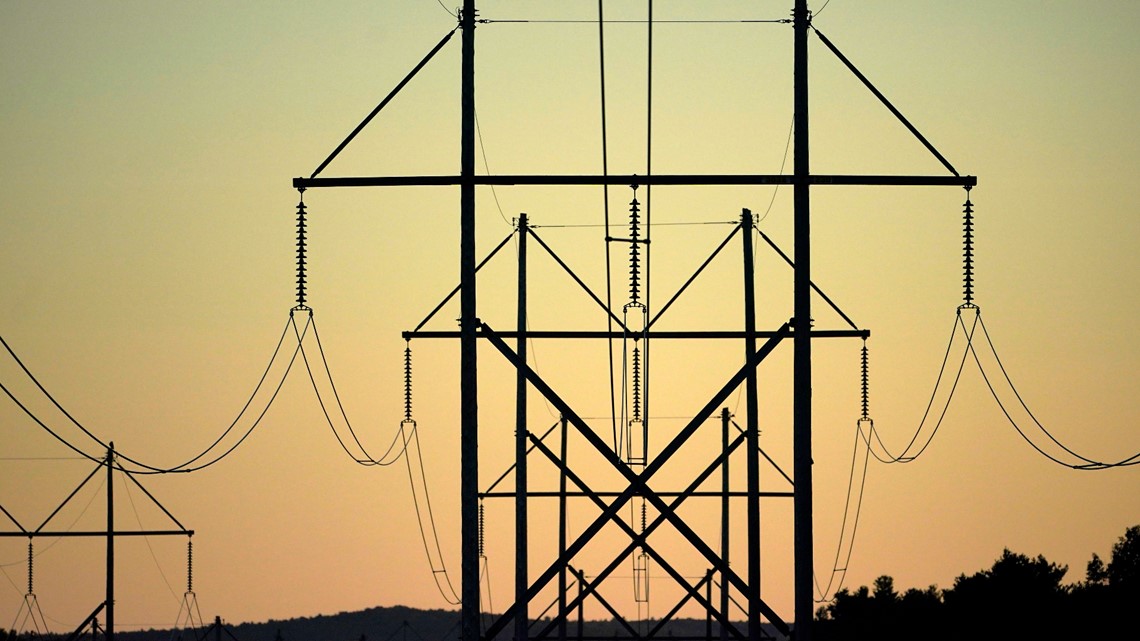PORTLAND, Maine — A jury that heard complicated testimony about construction schedules and constitutional rights delivered a victory Thursday for a $1 billion transmission project, concluding developers had a constitutional right to proceed despite being rebuked by state voters in a referendum.
Jurors ruled 9-0 in favor of developers when asked to decide whether enough work was completed in good faith before the referendum for developers to have a vested right to complete the project.
Based on the outcome, a state judge is expected to conclude that the referendum was unconstitutional.
The decision will be appealed to the state Supreme Judicial Court for the final say.
At stake is a project touted as a bold effort to combat climate change by supplying up to 1,200 megawatts of Canadian hydropower to the New England power grid — enough electricity for about 1 million homes.
Supporters say electricity supplied by the 145-mile (233-kilometer) power transmission line would lower energy costs in all of New England as well as reduce carbon pollution. Critics contended that the benefits were overblown and that it would’ve destroyed woodlands along a new, 53-mile (85-kilometer) section carved through the woods to reach the Canadian border.
"I am obviously disappointed with today's result, but I am confident that I — and the 240,000 other Mainers who voted overwhelmingly in favor of the referendum — were correct when we voted to reject the CMP Corridor. We will continue to evaluate our options going forward," Tom Saviello, a former state lawmaker and opponent of the project, said in a statement following the verdict.
The Natural Resources Council of Maine also released a statement after the ruling, saying, “We are disappointed in today’s outcome and remain sharply focused on achieving a just and equitable clean energy future that works for all Mainers."
Despite winning all regulatory approvals, the project — to be fully funded by Massachusetts ratepayers — was met with pushback each step of the way. Ultimately, state voters voted against it in a referendum and work was halted.
“The jury’s unanimous verdict affirms the prior rulings of the Maine Supreme Judicial Court that the New England Clean Energy Connect (NECEC) project may lawfully proceed," Scott Mahoney, Avangrid's senior vice president and general counsel, said in a statement following Thursday's verdict. "Even after repeated delays and the costs caused the change in law, the NECEC project remains the best way to bring low-cost renewable energy to Maine and New England while removing millions of metric tons of carbon from our atmosphere each year.”


The Supreme Judicial Court breathed new life into the project last summer, concluding the retroactive nature of the referendum would violate the developers’ constitutional rights if substantial construction had been completed in good faith.
Justice Michael A. Duddy could have made the fact-finding determination himself. But he took the unusual step of ordering a jury trial, putting the fate of the trial in the hands of nine regular folks.
Central Maine Power’s parent company and Hydro Quebec teamed up on New England Clean Energy Connect and construction started in January 2021, about 10 months before the referendum in which 59% of voters rejected the project.
Opponents contended the developers acted in bad faith, speeding up the construction schedule to try to thwart the will of the people in the referendum. Developers said they were keeping to a schedule set years earlier.
Our Power, the group running the campaign for consumer-owned power in Maine, said the case showed Mainers care about energy-related issues in the state.
"Voters have the option in November to vote yes on Pine Tree Power to have a say in their own energy future," the group said in a statement Thursday. "The Pine Tree Power Company would be under the direction of Mainers; decisions will be made by elected representatives who will be held accountable to the people. It is clear that Mainers care about their energy future and are paying attention."
The matter is one of two lawsuits to go before the Supreme Judicial Court.
The other lawsuit challenged leases for a 1-mile portion of the proposed power line that crossed state land. The high court ultimately ruled there was nothing improper with the lease.

